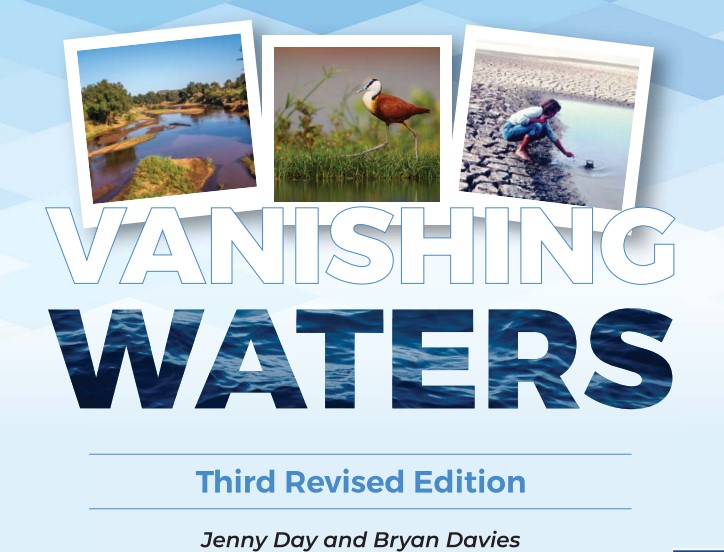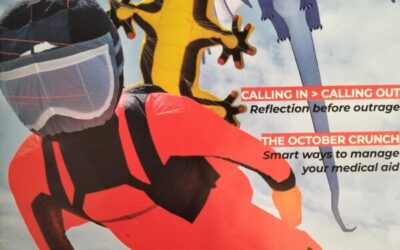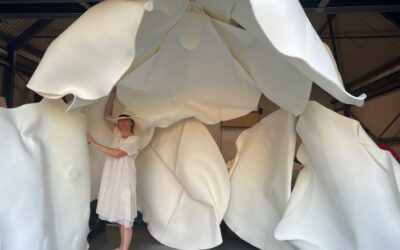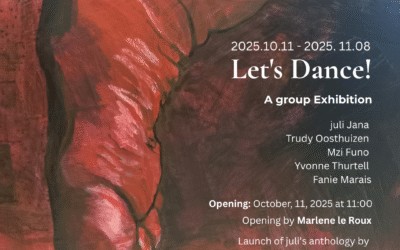Vanishing Waters, a seminal publication authored by Professor Jenny Day and the late Professor Bryan Davies will be launched at the Two Oceans Aquarium. The publication is timeous as the impacts of climate change are being experienced across the globe and the importance of water availability, quality, accessibility, and equality have never been more critical.
Vanishing Waters will appeal to a wide range of readers – from dedicated conservationists and students to those simply interested in rivers and wetlands.
“As ecologists we have attempted to provide a coherent account of the ecology of rivers and wetlands, and the problems of managing them and the services they provide to us as humans. We hope that the book will provide ammunition in the form of hard facts on the one hand and an introduction to a fascinating and problem-ridden topic on the other. If this book does no more than provide an awareness of our reliance on water, and instil a respect for aquatic environments, their diversity and their life forms, then we shall not have written it in vain” said Professor Day.
Two themes recur throughout Vanishing Waters: water as a resource required by humans, and water as a resource required by aquatic ecosystems themselves, both as providers of that resource and as dependants on it.
Water is increasingly a scarce resource from a human point of view. The scarcer water is for human use, the greater the impact on natural aquatic ecosystems, particularly rivers. Every human demand placed on rivers for water diminishes the natural integrity of the river. All natural systems, even the smallest and least impressive, are becoming less and less natural. They are being altered by the construction of dams, or through the accumulation of wastes, salt and silt; they are being destroyed entirely by building operations or the dumping of fill, by diversion and canalisation, and by floodplain and marina developments; their nature is being altered by salinized irrigation return-flows or by a variety of pollutants.
The issues surrounding water supply are complex, involving politics, engineering, sociology, law, planning, and economics. However, they also involve ecology, that most complex of sciences that covers all the interactions between plants and animals, with all the additional complexities of physics, chemistry, geology, geomorphology, and climatology.
South Africa faces a number of challenges regarding water
1. the lack of sufficient water for the growing population, agriculture, and industries of southern Africa;
2. ignorance by politicians, farmers, planners, engineers, and the general public of the consequences for aquatic ecosystems of over-use and abuse of water;
3. misconceptions in certain sectors of the population that water is in unlimited supply, that it just comes at the turn of a tap and that water that is left to run to the sea is water wasted;
4. the fact that, while South African water law (the National Water Act 38 of 1998) is an admirable piece of legislation, its implementation is fraught with difficulties (see Chapter 10); and
5. the fact that where a choice must be made between economic gain and environmental protection, financial considerations nearly always take precedence over environmental considerations.
However, attitudes to ecosystems like wetlands are changing rapidly amongst many sections of the population of South Africa, although there is a long way to go before attitude rather than legislation will protect them from harm. “We believe that people are becoming far more environmentally aware: witness the rebirth of the ethic of recycling in our consumer society (yes, we mean ‘rebirth’ – our grandparents knew all about recycling), and the growing environmental activism of several organisations and individuals. An open-minded and caring approach to environmental issues must become part of everyone’s attitude from an early age (although, of course, it is never too late to learn!)” said Professor Day.
WHAT: Vanishing Waters, by Professor Jenny Day and the late Professor Bryan Davies
WHERE: Copies of the book are available free of charge from the Water Research Commission. Place orders with Lani van Vuuren laniv@wrc.org.za , providing her with your street address for couriering purposes.
ELECTRONIC VERSION: HERE () and ().
INFO: Professor Jenny Day E jenny.day@uct.ac.za
See also MapMyWay | 2023 Art Craft + Museums Map – Two Oceans Aquarium [07] | Cape Town Green COASTAL Map {18}
About the authors
The late Bryan Davies was a Professor of Zoology at the University of Cape Town. He obtained a PhD degree from the University of Newcastle-upon-Tyne, England, with a doctoral thesis on Loch Leven in Scotland. He worked in Mozambique on the effects of the Cahora Bassa Dam on the Zambezi River system, before joining the Department of Zoology and Entomology at Rhodes University where, apart from teaching, he worked on Swartvlei and the Wilderness lakes with the late Professor Brian Allanson. In about 1980 he joined UCT’s Zoology Department. He was a Past President of the Southern African Society of Aquatic Scientists and was awarded the Society’s Gold Medal in 2003.
Jenny Day graduated from the University of Cape Town (UCT) with a First Class Honours Degree in Zoology and undertook her doctoral research on the systematics of a group of marine shrimps through the same University. She was at various times Head of the Department of Zoology, Deputy Dean in the Faculty of Science, and Director of the Freshwater Research Unit at UCT. She is particularly interested in arid areas, most especially the Namib Desert, where she has studied the ecology of hyper-saline streams and temporary water bodies. Further north she has been a member of the Board of the Water Research Fund for Southern Africa (WARFSA) and the East African Universities’ Lake Victoria Research Initiative, as well as teaching on the WaterNet inter-universities MSc programmes. After her retirement from UCT at the end of 2011, she was appointed Extraordinary Professor in the Institute for Water Studies at the University of the Western Cape (UWC), where she has been involved in a various research projects and where she still co-supervises a number of PhD students.
Her research has focused on the conservation and management of freshwater ecosystems, particularly with regard to water quality and invertebrate biology.
She is a Past President of the Southern African Society of Aquatic Scientists and was awarded the Society’s Gold Medal in 2013.






